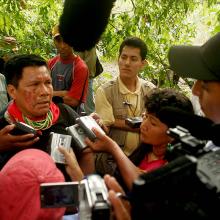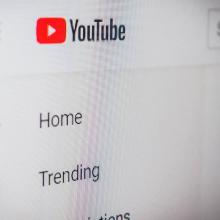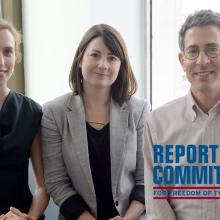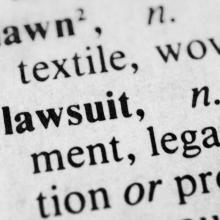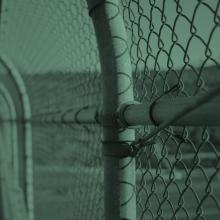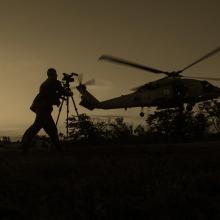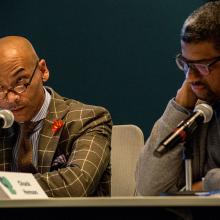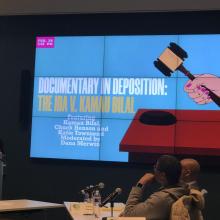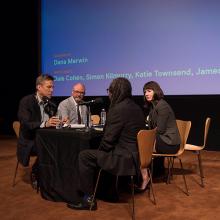Subpoenas demanding that documentary filmmakers reveal confidential sources, or disclose their outtakes, notes or other unpublished work product pose
Legal
It's tempting to take photos and excerpts of clips from seemingly non-professional sources that have been uploaded to YouTube and other internet sites
We most often associate the radical activism of the 1960s and 1970s with people of color, students, women and veterans organizing to make systemic
Unflinching investigative documentary filmmaking that tells uncomfortable and sometimes embarrassing truths about powerful people, corporations and
By Patricia Aufderheide and Peter Jaszi Documentary filmmakers in the US routinely employ fair use—the right to limited use of unpermissioned
By Steven Beer, Jake Levy and Neil Rosini Foreign production and distribution of a documentary raise a variety of distinct legal issues. Here are
Investigative documentary filmmaking is at its best when it’s telling difficult, controversial and even dangerous stories that push boundaries and
One problem with speaking truth to power is that sometimes, the powerful don’t like it. Although filmmakers can significantly reduce the likelihood of
Accuracy, facts and fairness are hallmarks of nonfiction storytelling and sacrosanct in journalism. Documentary filmmakers are obliged to follow local
Editor’s Note: What follows is a statement from the IDA regarding the Documentary Producers Alliance’s “ Best Practices in Documentary Crediting.”
